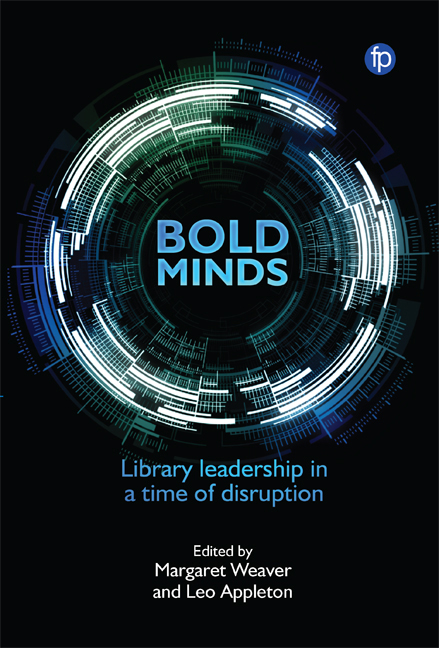Book contents
- Frontmatter
- Contents
- Foreword
- Contributors
- Preface
- Introduction
- Section 1 Views From the Corridors of Power: The Political and Global Perspective
- Section 2 The Re-Birth of Libraries – New Business Models and Re-Generation of Services
- Section 3 Who Really Matters? User Communities and Alignment
- Section 4 The Future Library Professional – Horizons and Challenges
- Index
7 - Students Lead the Future: Academic Library Space and Place
Published online by Cambridge University Press: 15 December 2020
- Frontmatter
- Contents
- Foreword
- Contributors
- Preface
- Introduction
- Section 1 Views From the Corridors of Power: The Political and Global Perspective
- Section 2 The Re-Birth of Libraries – New Business Models and Re-Generation of Services
- Section 3 Who Really Matters? User Communities and Alignment
- Section 4 The Future Library Professional – Horizons and Challenges
- Index
Summary
Introduction
Academic libraries worldwide are embracing user experience assessment and participatory design methods and involving students in their service development plans. However, the effectiveness of the student engagement strategy utilised is a key differentiator in success, with some libraries driving power shifts between their students and library staff to achieve strategic benefit.
From the use of personas to giving students what they really want to the design of libraries as safe, culturally aligned places, does a values-based methodology increase the chance that future libraries will advance at the pace needed? Will students or librarians be at the helm? This chapter outlines the assumptions underpinning modern practices in student engagement, student leadership using space and place as a lens, and comments on sustainable practice as reported in the librarianship literature.
In concluding the chapter, reflections are provided about the significance of academic libraries’ strategic alignment with their institutional contexts. Remaining relevant is thought to be a critical element in current discussions about the future of academic libraries. Finally, the author suggests which leadership qualities will be required to adapt to the changing global higher education environment and asks will these be found in librarians or students?
The politics of student engagement
User experience (UX) studies focus on the importance of patron-driven approaches to service delivery and library space design, promising a better fit to user expectations and future study demands (Appleton, 2016). However, realistically, to what extent do these initiatives really place the power of decision making in the hands of students – our customers – and are they successful?
To understand the context for the UX model we must first examine why student engagement in the design of academic libraries has become so desirable and critical to the business of library service development. Indeed, what is meant by the label ‘student’ and how does this affect relationships between librarians, users and their organisations in the 21st century?
In a theoretical sense, social commentators agree that identity is formed by the social context. It has meaning because the individual and society construct that meaning and therefore it is not a factual concrete object (Garfinkel et al., 2005), so arguably it can be changed or adapted.
- Type
- Chapter
- Information
- Bold MindsLibrary Leadership in a Time of Disruption, pp. 125 - 148Publisher: FacetPrint publication year: 2020



